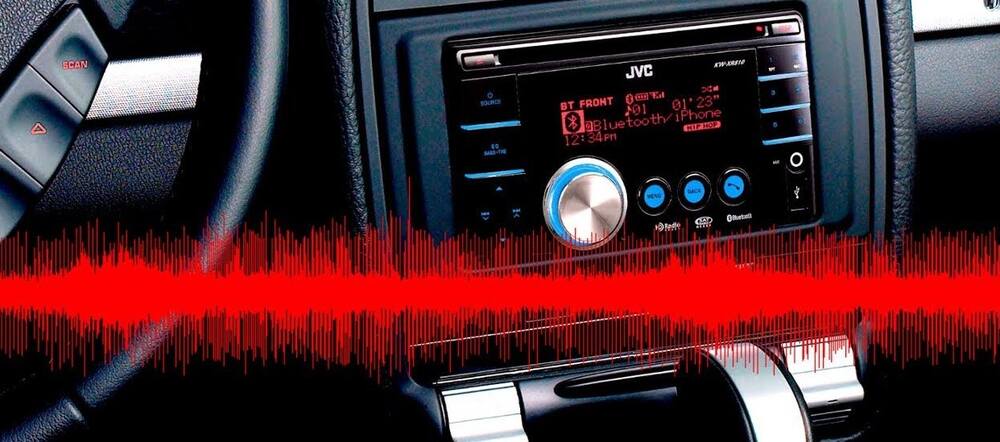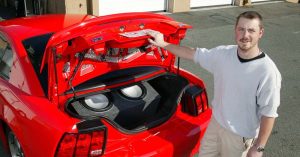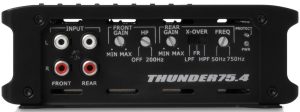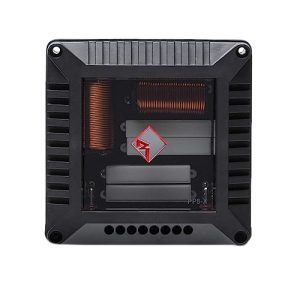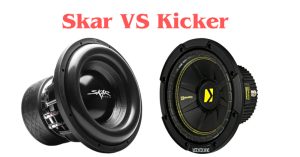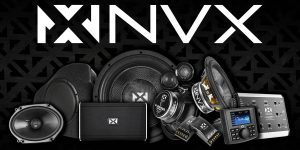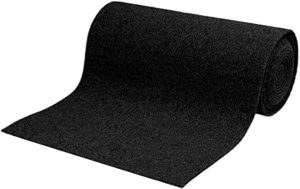A buzzing sound from your car stereo when you hit the gas pedal can be frustrating. You’re cruising down the road, ready to enjoy your favorite tunes, and suddenly, an annoying hum or whine disrupts the vibe. This issue, often tied to your vehicle’s electrical system, is more common than you might think. In this guide, we’ll dive deep into the reasons behind that pesky buzzing noise, explore practical solutions, and offer tips to keep your car audio system sounding crisp and clear. By the end, you’ll have a clear roadmap to diagnose and fix the problem, ensuring your drives are filled with music, not interference.
Contents
Understanding the Buzzing Sound in Your Car Stereo
Before we jump into solutions, let’s break down what’s happening. The buzzing or whining noise typically syncs with your engine’s RPM (revolutions per minute). When you press the accelerator, the engine works harder, and the noise gets louder or changes pitch. This suggests the issue stems from electrical interference, often called “alternator whine” or “ground loop interference.” Your car’s audio system is sensitive to these disruptions, which can sneak into the speakers and ruin your listening experience.
Several components in your vehicle, like the alternator, spark plugs, or even poorly installed audio equipment, can cause this interference. The good news? Identifying the root cause is the first step to silencing the buzz. Let’s explore the most common culprits and how they affect your car stereo.
Common Causes of Buzzing in Car Stereos
1. Alternator Whine
The alternator, which charges your car’s battery and powers electrical systems, is a frequent source of buzzing. As the engine revs, the alternator spins faster, generating electricity. This process can create high-frequency electrical noise that seeps into your stereo system. If your stereo’s wiring isn’t properly shielded or grounded, this noise manifests as a whining or buzzing sound through the speakers.
2. Ground Loop Interference
A ground loop occurs when different components in your audio system have mismatched grounding points. For example, your stereo head unit and amplifier might be grounded at different spots in the car, creating a loop that picks up electrical interference. This interference often sounds like a hum or buzz, especially when the engine accelerates.
3. Faulty or Poorly Installed Wiring
Wiring issues are another common culprit. If power cables and audio signal cables (like RCA cables) run too close together, they can pick up electromagnetic interference. Aftermarket stereo installations, in particular, are prone to this if the installer cuts corners or uses low-quality cables.
4. Faulty Spark Plugs or Ignition System
Worn-out spark plugs or a malfunctioning ignition system can also cause electrical noise. As spark plugs age, they may misfire, sending erratic electrical signals through the car’s system. These signals can interfere with your stereo, especially during acceleration when the engine demands more power.
5. Amplifier Issues
If you’ve added an aftermarket amplifier to boost your audio system, it could be part of the problem. Amplifiers are sensitive to power fluctuations and poor grounding. A low-quality or improperly installed amp can amplify electrical noise along with your music, resulting in buzzing.
6. External Interference
In rare cases, external factors like a nearby cell phone, GPS device, or even power lines can introduce noise into your stereo. While less common, these sources can still disrupt your audio, especially if your system lacks proper shielding.
Now that we’ve identified the potential causes, let’s move on to diagnosing the issue. A systematic approach will help you pinpoint the problem and apply the right fix.
How to Diagnose the Buzzing Sound
Diagnosing the buzzing noise requires patience and a bit of detective work. Follow these steps to narrow down the cause:
Step 1: Check When the Noise Occurs
Pay attention to when the buzzing starts. Does it happen only when you accelerate? Does it change pitch with engine speed? If the noise syncs with RPM, alternator whine or ignition issues are likely suspects. If the buzz is constant, a ground loop or wiring issue might be to blame.
Step 2: Test the Audio Source
Switch between different audio sources, like FM radio, Bluetooth, or an auxiliary input. If the buzzing only occurs with one source, the issue might lie with that connection (e.g., a faulty aux cable or Bluetooth receiver). If the noise persists across all sources, the problem is likely in the stereo system or wiring.
Step 3: Inspect the Grounding
Check the grounding points for your stereo and amplifier. Ensure all components are grounded to a clean, unpainted metal surface on the car’s chassis. Loose or corroded ground connections can introduce noise.
Step 4: Examine Wiring
Look at the wiring setup, especially if you have an aftermarket system. Are power and signal cables bundled together? If so, separate them to reduce interference. Check for damaged or frayed cables that might be picking up noise.
Step 5: Test the Alternator and Ignition
If you suspect alternator whine or spark plug issues, have a mechanic test these components. A multimeter can measure alternator output, and a visual inspection can reveal worn spark plugs or ignition coils.
Step 6: Isolate External Interference
Turn off nearby electronic devices, like your phone or GPS, to see if the buzzing stops. Move your car to a different location to rule out interference from power lines or other external sources.
Once you’ve identified the likely cause, it’s time to apply the right fix. Below, we’ll walk through practical solutions to eliminate the buzzing and restore your stereo’s sound quality.
Solutions to Fix the Buzzing Sound
1. Install a Noise Filter
A noise filter, also called a ground loop isolator, is an affordable and effective way to reduce alternator whine and ground loop noise. These devices connect between your stereo and amplifier or audio source, filtering out unwanted electrical noise. For best results, choose a high-quality filter and follow the manufacturer’s installation instructions.
2. Improve Grounding
Proper grounding is critical for a noise-free audio system. To fix ground loop issues:
- Ensure all components (stereo, amp, etc.) are grounded to the same point on the car’s chassis.
- Use a clean, unpainted metal surface for grounding.
- Check for loose or corroded connections and secure them tightly.
- Consider upgrading to a thicker ground wire for better conductivity.
3. Reroute Wiring
If power and signal cables are running parallel or bundled together, reroute them to minimize interference. Keep power cables (connected to the battery or alternator) on one side of the car and audio signal cables (like RCA cables) on the opposite side. Use shielded cables for extra protection against electromagnetic noise.
4. Replace Faulty Components
If diagnostic tests point to a faulty alternator, spark plugs, or ignition coils, replace them promptly. A healthy alternator produces clean power, and new spark plugs ensure smooth engine performance, both of which reduce electrical noise. Consult a mechanic for professional repairs if you’re not comfortable doing this yourself.
5. Upgrade Your Amplifier
If your amplifier is the source of the buzzing, consider upgrading to a higher-quality model with better noise rejection. When installing a new amp:
- Use a dedicated power line from the battery with an inline fuse.
- Ground the amp properly to the chassis.
- Adjust the gain settings to avoid amplifying background noise.
6. Add Shielding
For persistent interference, add shielding to your audio system. Ferrite beads, which clip onto cables, can suppress high-frequency noise. You can also wrap sensitive cables in shielding tape or conduit to block electromagnetic interference.
7. Professional Installation
If you’ve tried everything and the buzzing persists, it might be time to call in a professional. A car audio specialist can diagnose complex issues, rewire your system, and ensure all components are installed correctly. This is especially helpful for aftermarket systems, which require precise setup to avoid noise.
Preventing Future Buzzing Issues
Once you’ve fixed the buzzing, take steps to prevent it from returning. Here are some proactive tips to keep your car stereo sounding great:
Choose Quality Components
Invest in high-quality stereo equipment, cables, and accessories. Cheap components are more likely to pick up interference or fail over time. Look for shielded cables, reputable amplifier brands, and stereos with built-in noise suppression.
Regular Maintenance
Keep your car’s electrical system in top shape. Schedule regular tune-ups to replace worn spark plugs, check the alternator, and inspect wiring. A well-maintained vehicle is less likely to produce electrical noise.
Proper Installation
Whether you’re installing a new stereo or upgrading your system, follow best practices. Separate power and signal cables, use proper grounding techniques, and secure all connections. If you’re not confident in your skills, hire a professional installer.
Monitor for New Interference
If you add new electronics to your car, like a dash cam or GPS, monitor for new buzzing noises. These devices can introduce interference if not installed correctly. Test your stereo after adding any new equipment to catch issues early.
Why Fixing the Buzzing Matters
A buzzing car stereo isn’t just annoying—it can distract you while driving and mask important sounds, like emergency sirens or engine issues. Plus, unresolved electrical problems could damage your audio system or other vehicle components over time. By addressing the buzzing promptly, you’ll enjoy better sound quality, safer drives, and peace of mind knowing your car is in good shape.
When to Seek Professional Help
While many buzzing issues can be fixed with DIY solutions, some problems require expert attention. If you’ve tried the steps above and the noise persists, or if you’re dealing with complex electrical issues like a failing alternator, consult a professional. A car audio technician or mechanic can run advanced diagnostics, repair faulty components, and ensure your system is optimized for performance.
Enhancing Your Car Audio Experience
Fixing the buzzing is just the start. To take your car audio to the next level, consider these upgrades:
- Upgrade Speakers: High-quality speakers deliver clearer sound and are less prone to distortion.
- Add a Subwoofer: A subwoofer enhances bass, making your music more immersive.
- Sound Deadening: Apply sound-deadening materials to your car’s doors and floor to reduce road noise and improve audio clarity.
- Tune Your System: Adjust equalizer settings and amplifier gains to optimize sound for your vehicle’s acoustics.
These upgrades, combined with a noise-free system, will transform your drives into a concert-like experience.
Conclusion
A buzzing car stereo when you accelerate is a common issue, but it’s not one you have to live with. By understanding the causes—alternator whine, ground loops, faulty wiring, or ignition problems—you can diagnose the problem and apply the right fix. Whether it’s installing a noise filter, improving grounding, or replacing worn components, the solutions are within reach. With a little effort, you’ll silence the buzz and enjoy crystal-clear audio on every drive.
Take action today. Check your stereo, test your wiring, and follow the steps outlined above. If the problem feels overwhelming, don’t hesitate to seek professional help. Your car is more than just a mode of transportation—it’s your personal soundstage. Keep it sounding great.
